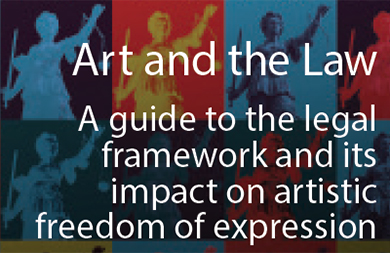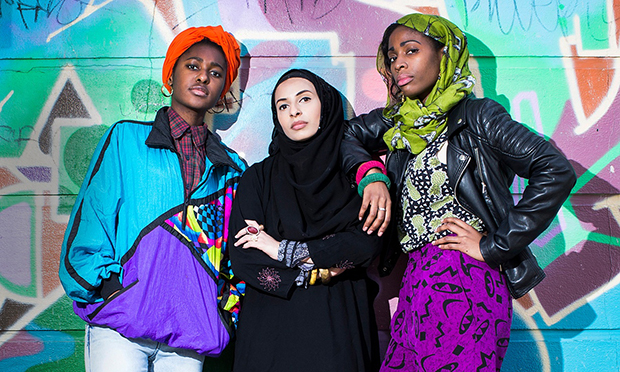Index relies entirely on the support of donors and readers to do its work.
Help us keep amplifying censored voices today.
The following letter was published in The Times.
Sir, The abrupt cancellation of the National Youth Theatre’s production of Homegrown is a troubling moment for British theatre and freedom of expression. The play seeks to examine radicalisation and disaffection among British youth. Its cancellation serves only to shut down conversation on these important issues. We fear that government policy in response to extremism may be creating a culture of caution in the arts.
We are deeply concerned by reports that the NYT may have been put under external pressure to change the location and then cancel the production. Police, local authorities and arts organisations have a duty to respect and protect freedom of expression — even, and most especially, where they disagree with the message or find it controversial.We urge the NYT to give a full account of what led to the decision, and hope that a way can be found to stage it so that the young voices involved can be heard and the production can be judged on its merits.
Maureen Freely, president, English PEN
David Aaronovitch, chair, Index on Censorship
Jodie Ginsberg, chief executive, Index on Censorship
Jo Glanville, director, English PEN
Shami Chakrabarti, director, Liberty
Anish Kapoor, artist
Anneliese Davidsen, executive director, Unicorn Theatre
Christopher Haydon, artistic director, Gate Theatre
Sir David Hare, playwright
David Lan, artistic director, Young Vic
Gurpreet Kaur Bhatti, playwright
Heydon Prowse, actor
Jolyon Rubinstein, actor
Howard Brenton, playwright
Josie Rourke, artistic director, Donmar Warehouse
Lorne Campbell, artistic director, Northern Stage
Monica Ali, writer
Timberlake Wertenbake, playwright
Nell Leyshon, playwright
Nick Williams, executive director, Actors Touring Company
Ramin Gray, artistic director, Actors Touring Company
Sabrina Mahfouz, playwright
Sarah Frankcom, artistic director, Royal Exchange Theatre Manchester
Simon Callow, actor
Stella Odunlami, artist and performer
Related:
• The Times: Why was Homegrown cancelled?
• Index calls for transparency on Homegrown cancellation (13 August 2015)
• Creative team behind Homegrown “deeply shocked” by cancellation (13 August 2015)
• Cancellation of Homegrown is very worrying (5 August 2015)
 |
Child Protection: PDF | webCounter Terrorism: PDF | webPublic Order: PDF | webObscene Publications (available autumn 2015) |

The 112 young cast members were two weeks into rehearsals when the production was cancelled. (Photo: Helen Maybanks / National Youth Theatre)
The following is a statement issued by the creative team behind the cancelled production Homegrown.
We were deeply shocked to find out in an email from the Artistic Director of NYT, Mr Paul Roseby, that the company had decided to cancel the production of Homegrown 10 days before the first preview. We have since been left disappointed and baffled that every subsequent attempt to meet with the NYT – including a meeting planned for Tuesday 11 August – has been either postponed or cancelled.
Homegrown was intended to be a site-specific theatrical exploration of radicalisation, the stories and communities behind the headlines and the perceptions and realities of Islam and Muslim communities in Britain today. The creative team and our cast of 112 young people were two weeks into rehearsals, the culmination of a six-month process, when the production was cancelled. There was no warning and no consultation. We feel that the reasons for this production being shut down have not been transparent, openly addressed nor fully addressed.
Not only have we been silenced, but our 112 cast members – who cared passionately about the show, its content and its questions – have had their artistic expression curbed. The following are just some of their words:
“I have no doubt in my mind that Homegrown would have been an incredible and hugely important production, and for those reasons I truly believe that even though it isn’t happening at present it absolutely must be resurrected in the future.”
“The issue of radicalisation and the role Islam plays in our society is one that needs to be addressed. It’s an elephant in the room for the UK that is not being currently explored.”
“I felt like a genuine creative; and with strong guidance we crafted responses to the world around us. Yet in a moment we were taken back to the level of “just kids” who need to be told what’s best and most safe for us, I can’t say how frustrating it is to go from a place of give and take discussion to top-down authoritarianism. It genuinely worries me on behalf of the freedom of speech promised to creatives in this country and I do feel silenced as an artist. The irony being that these are all strands that would have run through Homegrown.”
“To me, Homegrown being pulled was like my vocal chords being cut. It was everything that was needed to be said and everything that I always felt I couldn’t say.”
“I was genuinely thrilled and exhilarated every day as we peeled back yet more layers of the complex and nebulous issues surrounding radicalisation and Islamophobia”
“If you are going to take on a subject matter this sensitive then you have a responsibility to see it through. To a lot of us this was not just some controversial play we wanted to be a part of, it was about social change and awareness and staying ‘awoke’.”
We feel it is imperative, considering the current political climate, to open up and bring awareness to some of the broader issues and the socio-political landscape of radicalisation, homegrown extremism, and even the simple conversation about Islam. We are making art in a particular climate: the climate of PREVENT and CHANNEL – programmes which are creating an environment in which certain forms of questioning, let alone subversion, of the given narrative pertaining to radicalisation or extremism can be closed down.
It felt like battle lines were being drawn when, on the first day of rehearsals of a show that was to be denied its voice, David Cameron gave his strongest statement drawing links between non-violent extremism and jihadism. As artists we find it unseemly that we are having to defend our work in this manner but, also as artists, we would defend the irreducible right of all artists to make art.
We are keen to turn this into a positive galvanising moment and start a dialogue around these long-standing questions, and are reaching out to artists, institutions and individuals across a spectrum of industries to support us in opening up the conversation we had hoped to initiate with Homegrown.
Index on Censorship calls on the National Youth Theatre (NYT) to publicly and transparently disclose its consultations with police and council officials in the lead-up to the cancellation of the play Homegrown.
The team behind the production, which explored Islamic radicalisation among young people in the United Kingdom, released a statement that details the cancellation from their point of view. It is now up to the other parties involved to fully disclose their decision-making process to allow the public — including tax-payers who are funding this production — to understand this violation of free expression.
“We were deeply shocked to find out in an email that the company had decided to cancel the production of Homegrown 10 days before the first preview,” read the statement, which was signed by Mina Aidoo (choreographer), Omar El-Khairy (writer), Paris Erotokritou (associate director), Nadia Latif (director), Lorna Ritchie (designer) and Keziah Serreau (associate director).
The production was two weeks into rehearsals when the cancellation was announced, The Guardian reported. The show, which had been in development for six months, was the product of workshops with British young people between the ages of 16 and 25.
It is very worrying that an arts project exploring an important subject that young people of all ethnicities need to be able to discuss and debate has been closed down. Equally concerning are the actions of Tower Hamlets council, some allegations about police involvement and the absence of any clear and transparent public statement on the part of NYT.
Without even a line of legislation being debated, the government has created an atmosphere whereby a play about extremism can be cancelled with no reason given, in a completely opaque way with no respect for freedom of expression.
Police, councils and arts organisations have a duty to respect and protect freedom of expression — even, and most especially, where they disagree with the message or find it controversial.
• Cancellation of Homegrown is very worrying
 |
Child Protection: PDF | webCounter Terrorism: PDF | webPublic Order: PDF | webObscene Publications (available autumn 2015) |
It is very worrying that a theatre production about an important subject and one that young people need to be able to discuss and debate should be closed down.
The decision to cancel Homegrown, a National Youth Theatre production that included a cast of 112 young people between the ages of 15 and 25, was made 10 days before it was due to be staged at an east London school. The play, a promenade-like production in which the audience would overhear hallway conversations between the actors, was developed through workshops put on by the creators. Director Nadia Latif and playwright Omar El-Khairy believe the production was cancelled due to external pressures, according to The Guardian.
Despite the Prime Minister’s recent statements about shutting down speech about extremism, as a society we should be encouraging vehicles that shed light on the processes of radicalisation among young people. The way forward is to open up discussions about controversial subjects in contemporary Britain.
The police and local officials clearly need to be reminded that they have a duty to protect the right to free expression.
 |
Child Protection: PDF | webCounter Terrorism: PDF | webPublic Order: PDF | webObscene Publications (available autumn 2015) |